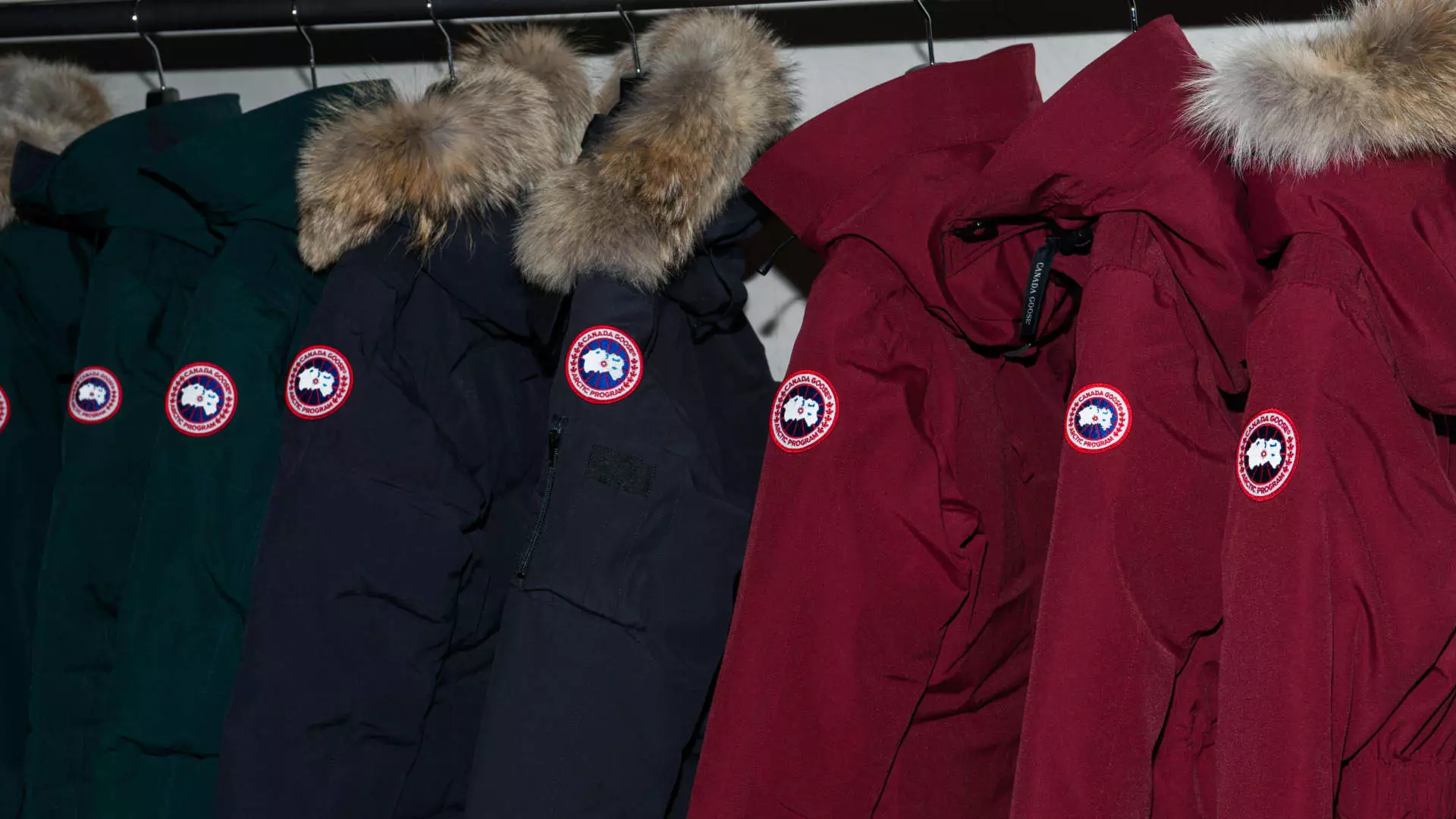In a glaring example of the unpredictable nature of the stock market, CoreWeave, a cloud service whose primary offering involves renting access to Nvidia’s GPUs, has found itself in tumultuous waters. After a disastrous debut, with shares plummeting more than 9% in just its second trading day, the company highlights a critical concern for investors: reliance on a single tech giant. It’s a pattern too often repeated, as companies tethered to specific industry titans frequently face backlash when those leading firms experience setbacks. Nvidia’s own share price naturally followed suit, dropping over 4%. This dual decline raises red flags about the durability of businesses that do not cultivate their own independent market strengths.
Canada Goose Bracing Against Harsh Conditions
The Canadian outerwear brand Canada Goose is another casualty of the current economic landscape, reporting a staggering 6% drop to reach new 52-week lows. Barclays’ downgrade from equal weight to underweight is enough to send investors scrambling for exits. It’s a sobering reminder that external factors such as global economic pressures and competitive intensity can wreak havoc on formerly stable companies. What some may dismiss as mere “market fluctuations” may indeed be indicative of deeper, systemic issues. The potential tariff exposure only adds fuel to the fire, suggesting that Canada Goose could face a more perilous road ahead as external economic forces could severely impact their profit margins.
Moderna’s Vaccine Controversies
In perhaps the most alarming scenario for healthcare investors, Moderna’s shares experienced an 8% decline directly following the resignation of an FDA top official. His departure, framed within a narrative of “misinformation and lies” regarding vaccination, has significant implications not just for Moderna, but for the healthcare sector at large. The market is faced with the unsettling realization that the political machinations surrounding vaccine approvals could considerably hinder the speed and effectiveness of critical health responses. A lack of public trust could spiral into a perpetual cycle of uncertainty affecting investments and innovation.
Celsius Holdings and the Energy Drink Surge
Amidst the chaos, there were glimmers of optimism, particularly for Celsius Holdings, which saw a robust 8% rise following an upgrade from Truist. This uptick underscores an essential truth about market behavior: those companies with a clear vision and capable of harnessing consumer trends (in this case, targeting women in the energy drink sector) can defy odds, even while the broader industry falters. However, this success prompts questions regarding how long legacy companies can maintain their dominance amidst emerging competitors. While Celsius celebrates its victory, other companies should be prepared for aggressive strategies from the new challengers.
Tesla: The Goliath Struggling with Giants
Tesla, once the torchbearer of electric vehicle progress, recently saw a 2% pullback following Stifel’s revised price target. The slower-than-expected rollout of the Model Y is troubling, especially as protests add a ripple of volatility to the brand. Tesla’s more than 36% year-to-date loss is a sobering testament to the challenges its once-mighty monopoly faces. Ignoring these developments at the world’s largest EV maker would be unwise; competitors are sharpening their knives, ready to capitalize on any misstep as they push to claim their stake in the burgeoning electric vehicle market.
The Cryptocurrency Fallout
The turbulent landscape is further complicated by the recent downturn in cryptocurrency stocks. Bitcoin-related shares are facing significant pressure as the flagship cryptocurrency appears rudderless after a weekend drop. Reduced values have led to stocks like Coinbase and Robinhood to fall, indicating a widespread loss of confidence that could have long-term effects on the whole crypto sector. The question remains: will crypto ever stabilize, or are we witnessing the early signs of a persistent decline?
United Airlines: A Stormy Flight Ahead
United Airlines is charting a troublesome course, with shares down more than 2%, marking the worst month for the company since March 2020. The 27% decline this month alone, paralleled by similar drops in competitors like American Airlines and Delta Air Lines, presents compelling evidence that the airline industry is not just experiencing bumps but full-blown turbulence. It exposes a shocking reliance on consumer behavior that seems increasingly volatile in uncertain times.
Mr. Cooper Group Capitalizing on the Turmoil
In a surprising turn of events, Mr. Cooper Group saw a remarkable jump of 15% thanks to a significant acquisition deal with Rocket Companies. Even amidst the chaos surrounding other sectors, a well-structured plan can hold the promise of financial windfall. For many investors, the lesson becomes clear: seek out resilient companies that can adapt and find opportunities in turmoil while remaining cautious of those that are not.
In times of uncertainty, the financial markets serve as a vivid reminder that everything is connected. While some businesses thrive, many more are grappling with pressures that reveal their vulnerabilities. The next few months will be crucial for discerning who will navigate through this storm and who will falter.

